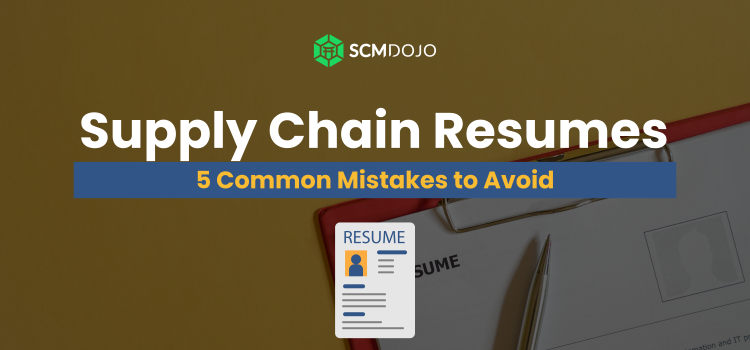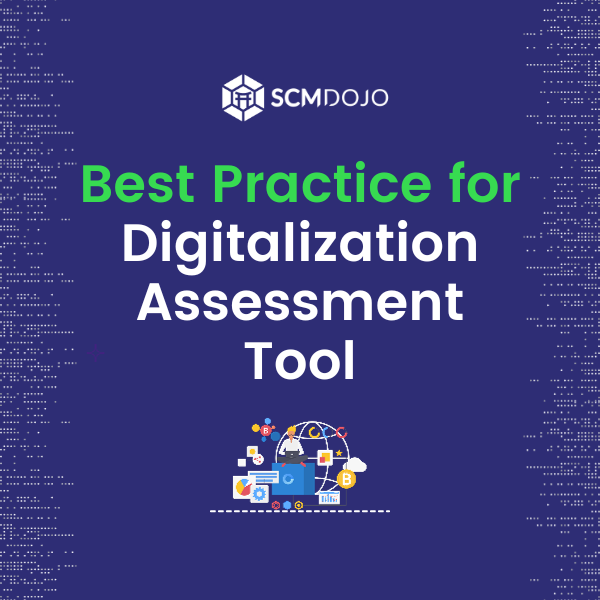Are you looking to enhance your chances of landing a supply chain role? As someone with extensive managerial and recruiting experience spanning over 15 years, I’ve had the opportunity to review a staggering number of resumes, totaling more than 200. Through this process, I’ve identified a recurring pattern of errors that often lead to these CVs being overlooked. If you’re eager to avoid these pitfalls and make a lasting impression, join me as I unveil the top 5 supply chain resume mistakes you should steer clear of. By the end of this article, you’ll be armed with the knowledge to optimize your resume and stand out from the competition. Let’s dive in!
[Read More: Top 10 Supply Chain Management Courses to Boost Your Career]
Top 5 Supply Chain Resume Mistakes to Avoid
- Career Objectives Too Long
- CVs are Not Customized for the Job You Are Applying
- Long List of Responsibilities
- No Mention of Key Achievements in the Current or Previous Roles
- Too Many Job Changes
Resume Mistake # 1: Career Objectives Too Long
Of course, you must mention your career objective and goals, however, a common mistake made is jumping from one objective to another – you may think mentioning having the motivation to be an analyst or supply chain manager or a director etc. is showing your flexibility to adapt to roles. This is NOT how a recruiter or employer will view this.
It is seen as someone who is unsure of what they want and may well not show the longevity and commitment that a company will be looking to. Every successful candidate will need to be trained and time and money is invested in them. They do not want to have this expenditure only to find they are moving on before you know it.
Focus on what you want to do next.
For example, if you are aiming to become a supply chain manager, focus on that objective, that you want to be an end-to-end supply chain manager – what do you want to gain from this role and what will you bring to it. How this role can help you develop skills for you to aim to progress further when the time is right. Demonstrate your awareness that this can, in future, lead to a strategic role and then move to a position of executive management.
Resume Mistake # 2: CVs are Not Customized for the Job You Are Applying
This leads neatly from the first mistake. If you are sending out a generic CV, hoping for the best, well you will not be getting very far. This shows lack of commitment and care in how you view getting a job – is it a job you want or a career?
If you want a career, impress by investigating the company you are applying to and tailor your CV to suit the role that is being advertised, matching the objective, keeping it succinct and to the point.
If you want to be a demand planner, research the skills, qualification and experience required. What do you have that ticks those boxes. Be as precise as possible to stand out and gain the attention of the reader.
Design you CV around the demand planning role you are applying for, mentioning experience, responsibilities and key achievements in your previous jobs as well as strategically choosing any correlating testimonials that you may have.
You may well have procurement or warehousing experience, but if that’s not what you are applying for, don’t go at a tangent to mention that – not only are you wasting CV space, but also the time of the reader – you will have plenty of time when progressing to the interview stage to mention these in terms of transferable skills.
Resume Mistake # 3: Long List of Responsibilities
Given that on average there are at least 20 people apply for 1 post on offer, of course it is instinctive to feel that to stand out you must list all the responsibilities and associated buzz words that you can think of.
No! This is hands down, the most common mistake in CVs.
The best way to combat this, is to realise that pretty much everyone applying will probably be writing a very long list of responsibilities too. And yes, for each responsibility you write, you can find a way to see it as relevant!
The theme from the previous 2 common mistakes, continues here, be precise and keep the responsibilities tailored and bespoke to the role you are applying for.
Write your list of responsibilities to your hearts content, then put yourself in the shoes of the recruiter, will you really be interested in reading that list, having already read a long list of career objectives that are seem like you are hoping for the best? Start cutting that list, including where some are actually saying the same thing but worded differently and some where it was a team responsibility, focus on your individual responsibilities that you will be confident to be given.
I would recommend 4 – 5 responsibilities. The aim of the CV is to grab the attention so you can get that foot in the door so as to elaborate and build further in an interview.
[Read More: 15 Essential Procurement Interview Questions and Their Answers]
Resume Mistake # 4: No Mention of Key Achievements in the Current or Previous Roles
Choose a key achievement and spend some time and space on your CV focussing on this and explaining it concisely yet with more detail that anything else.
How can you do this?
Use S.M.A.R.T. to help you. SMART means Specific, Measurable, Attainable, Relevant and Time-Based/specific.
For example, if you have improved the on-time delivery for the business, you should mention that in your role as, for example, demand planner or supply chain manager, you improved the forecast accuracy (Specific) which in turn resulted in better availability of the product (attainable) thus improving the on-time delivery of that product for the business (Time-specific) and therefore revenue. Then mention the customer-service KPI (relevant)and then on-time delivery KPI from 65 to say 85 (Measurable)
So, a supply chain hiring manager, what I am most interested in is what you have achieved as this opens points of discussion. Mentioning facts and figures of what key achievements you have attained give a recruiting manager something to want to explore such as how have you done this, what were the key driving forces behind this achievement and how long did it take for you to attain that etc.
In essence, by writing a small brief of a key achievement as opposed to a huge list of achievements / responsibilities, you are showing the company that you serious about applying to them and have researched what they are wanting.
Resume Mistake # 5: Too Many Job Changes
Often when starting out, you may find that you are frequently changing job and with it direction of the career path you think you want to follow.
Although that is entirely your choice, be ready to confidently explain, when asked why the frequent change. Again, you must bear in mind, the company hiring want longevity and stability with a view to possibly develop the candidate therefore have an expectation that they should at least receive 2 – 3 years of loyalty. The want to hire someone who would be an asset to them, therefore frequent changes will not necessarily be read positively and show inconsistency and lack of commitment.
My perspective when hiring is to see if that person can eventually be my successor.
So in this instance, make sure you do take a few lines to explain this in the CV as well as expect questions around the frequent change to be asked in the interview.
Hopefully by applying the above tips, you will increase you chances of being called for interviews.
–
About the Author – Dr Muddassir Ahmed
Dr MuddassirAhmed is the Founder & CEO of SCMDOJO. He is a global speaker, vlogger and supply chain industry expert with 17 years of experience in the Manufacturing Industry in the UK, Europe, the Middle East and South East Asia in various Supply Chain leadership roles. Dr. Muddassir has received a PhD in Management Science from Lancaster University Management School. Muddassir is a Six Sigma black belt and founded the leading supply chain platform SCMDOJO to enable supply chain professionals and teams to thrive by providing best-in-class knowledge content, tools and access to experts.
You can follow him on LinkedIn, Facebook, Twitter or Instagram.




